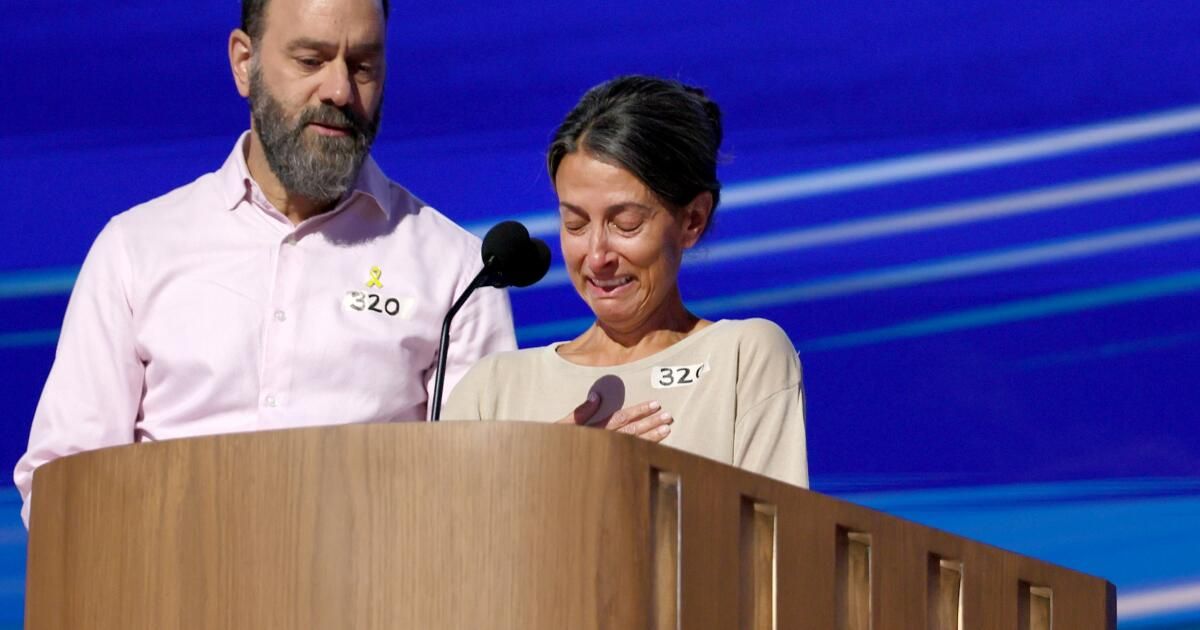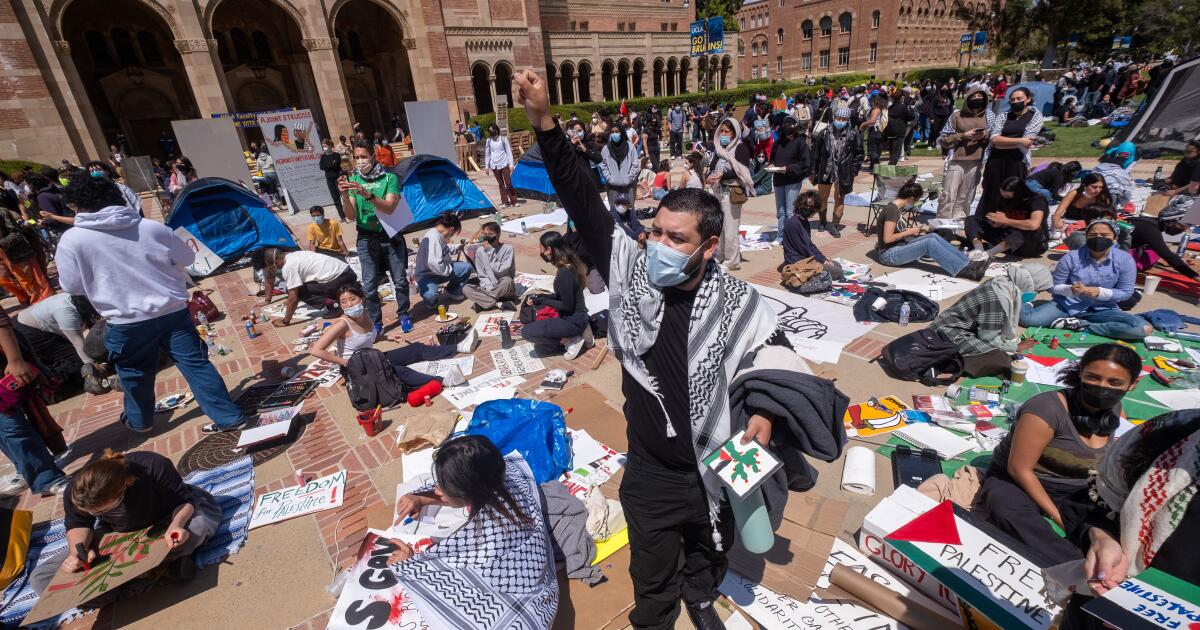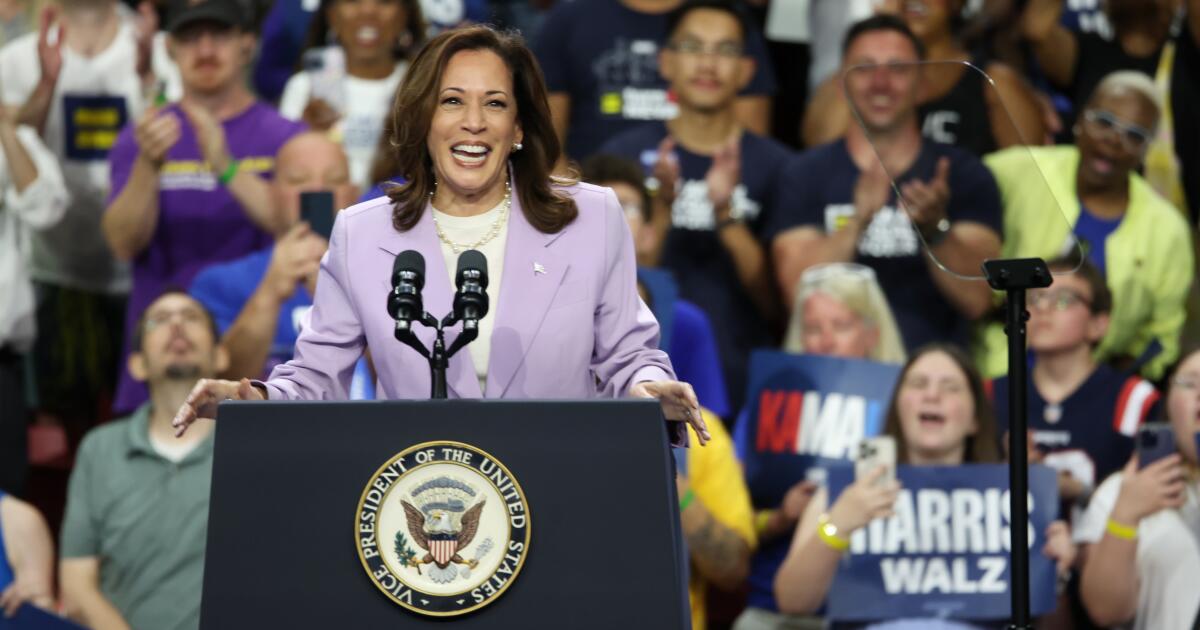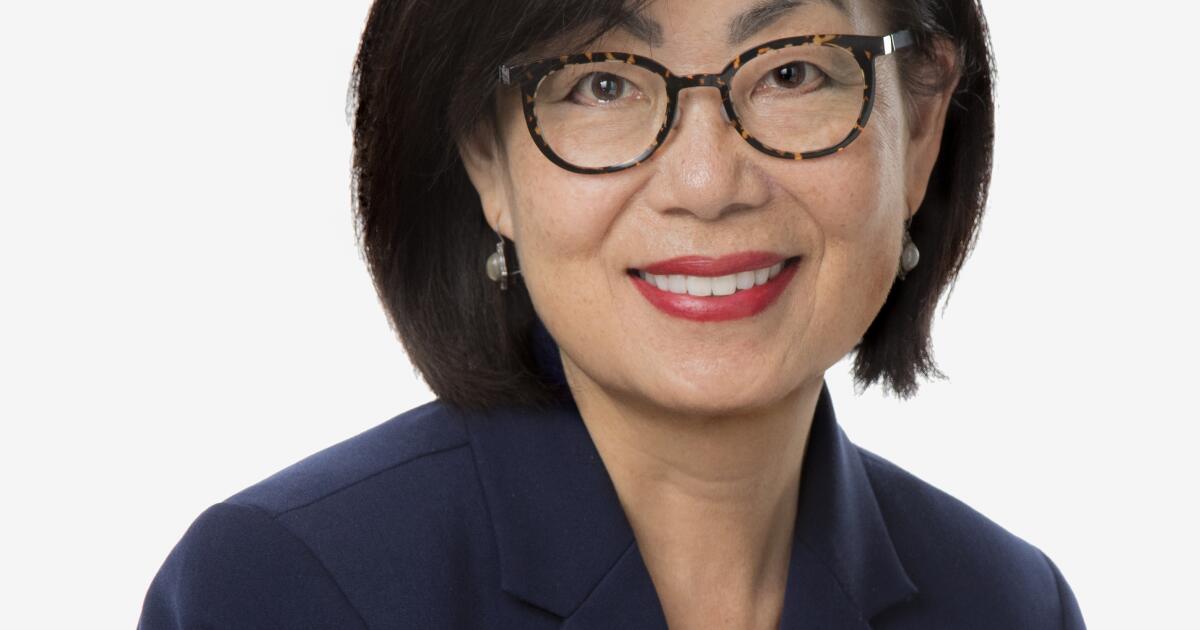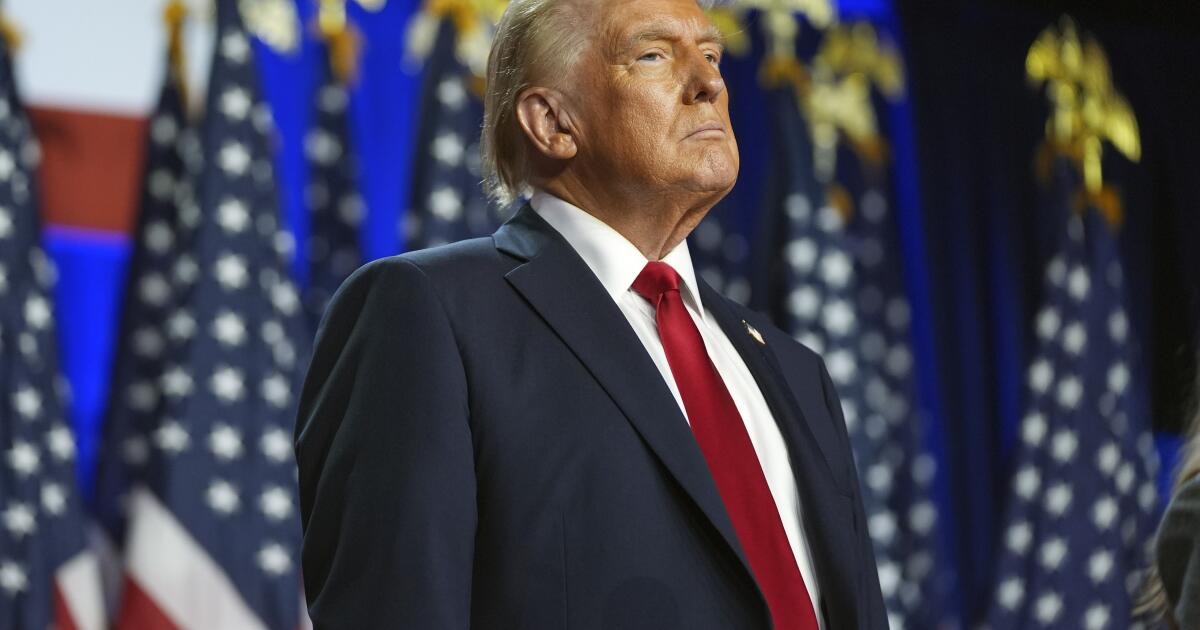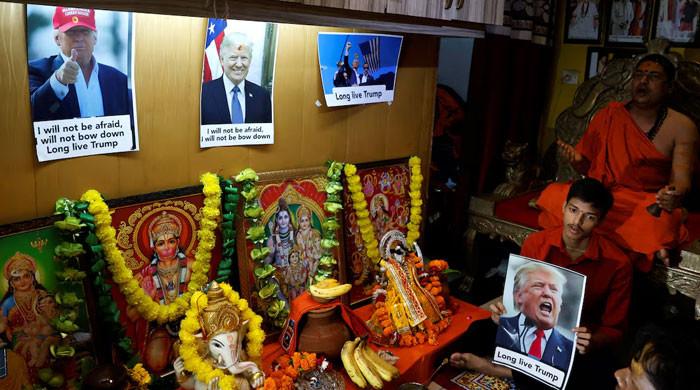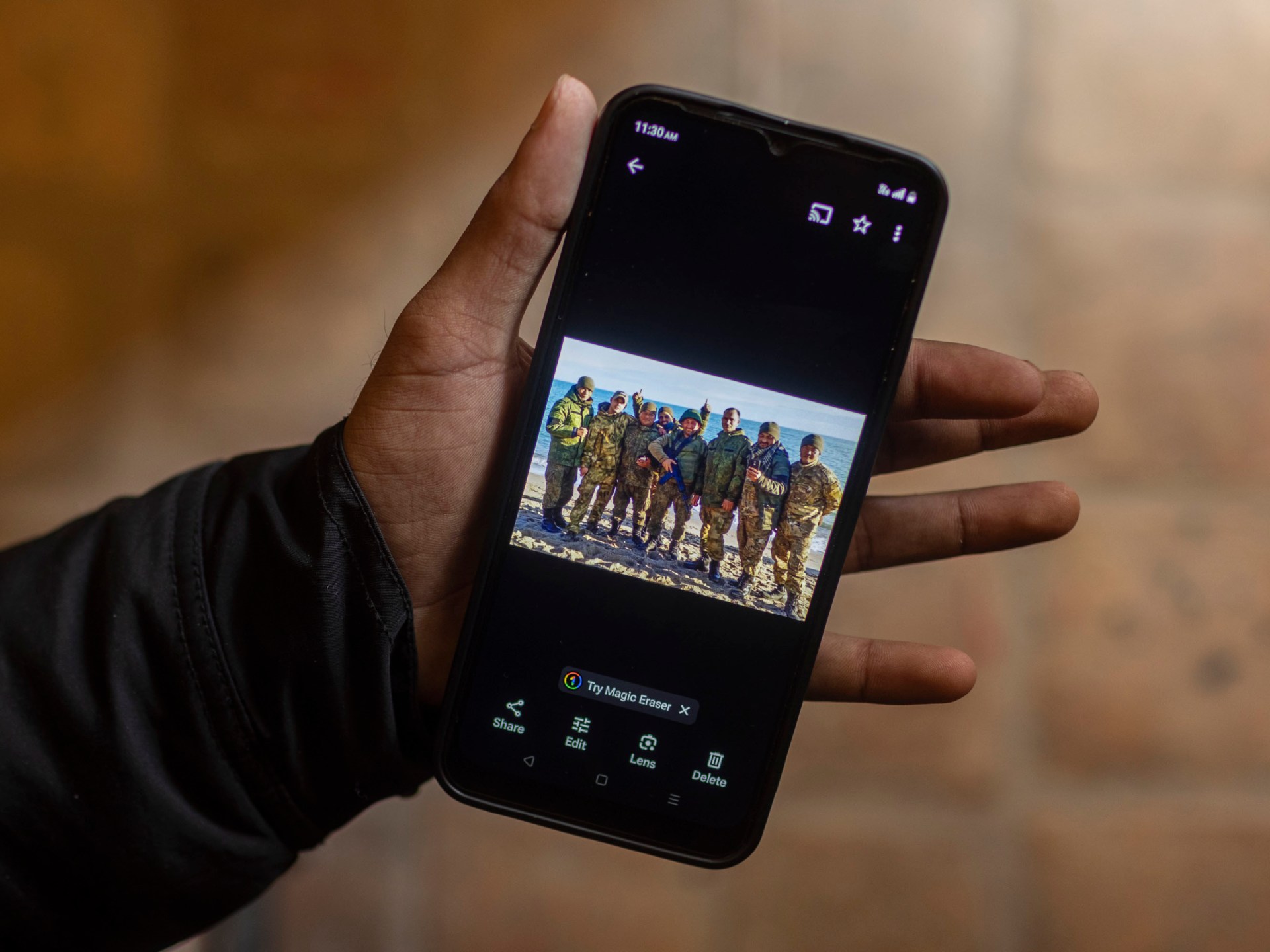Rachel Goldberg broke down almost as soon as she stepped onto the stage at the Democratic National Convention.
He put his hand to his chest, bowed his head and let it fall back onto the wooden lectern as the crowd erupted in chants of “Bring them home! Bring them home!” His shoulders shook.
She then stood up and called for the release of her son, Hersh Goldberg-Polin.
“Right now, 109 precious human beings are being held hostage by Hamas in Gaza,” Goldberg said. “They are Christians, Jews, Muslims, Hindus and Buddhists. They are from 23 different countries. The youngest hostage is a one-year-old red-haired baby and the oldest is an 86-year-old, mustachioed grandfather. Among the hostages are eight American citizens. One of those Americans is our only son. His name is Hersh.”
The war between Israel and Hamas has been the main source of division at this week’s Democratic gathering in Chicago. Thousands of pro-Palestinian activists marched through downtown Chicago on Monday to protest the Biden-Harris administration’s actions in the war. Dozens of people were arrested Tuesday night after violent clashes with police.
The room fell silent Wednesday night as Goldberg and her husband, Jon Polin, talked about their son Hersh, a 23-year-old Israeli-American and one of the U.S. citizens held captive in Gaza. On Oct. 7, a grenade blew off his left arm when Hamas attacked the Nova music festival.
When Goldberg and Polin addressed the convention, they wore a ribbon on their chests that read 320, a reference to the number of days their son has been held in captivity.
Since Goldberg-Polin was captured, her parents have campaigned tirelessly for her release. In addition to meeting with President Biden and Vice President Kamala Harris, they have met with Pope Francis and traveled to New York and Geneva to speak with United Nations officials.
Addressing Democratic delegates, they avoided framing the issue in partisan terms of the war between Israel and Hamas.
“This is a political convention,” Polin acknowledged, “but the fact that our only son and all the beloved hostages are coming home is not a political issue, it is a humanitarian issue.
“There is too much agony on both sides of the tragic conflict in the Middle East,” he added. “In a competition of pain, there are no winners.”
Polin called for a deal that would return all hostages home and also acknowledged the suffering of Palestinian civilians in Gaza.
“In our Jewish tradition, we say… “Each person is an entire universe,” he said. “We must save all those universes. In a Middle East in turmoil, we now have the only thing that can most immediately relieve the pressure and bring hope to the entire region: a deal that brings this diverse group of 109 hostages home and ends the suffering of innocent civilians in Gaza. The time is now.”
After Goldberg and Polin spoke, Abbas Alawieh, a Michigan delegate who said he spoke on behalf of more than 100,000 voters who cast “uncommitted” ballots in the Democratic primary, said he “sat down with them.”
“I was thinking about how, in the Muslim tradition, we know that if you harm or kill one person, it is as if you harm or kill all of humanity,” Alawieh said at a news conference held by uncommitted delegates outside the convention hall.
“Each one of those 109 people is a person. They are universes,” he said, referring to Polin’s speech.
He said he was also thinking of the thousands of children who perished in Gaza. “I could have been one of those children,” he said.
Alawieh, a Lebanese immigrant, said he grew up amid terrifying bombings.
He met with other uncommitted delegates after Goldberg and Polin spoke to address his main complaint with the convention: there is no Palestinian representation among the week's speakers.
“We know that Palestinians and we are all human,” he said. “That is why it would be unacceptable if the voices of Palestinians were suppressed to the point where they were not even allowed to go on stage.
“A party that prides itself on family values, a party that prides itself on protecting children and a party that prides itself on expanding rights – of course, this is the party where we would be heard,” he added.
But Alawieh said Harris’s campaign was asked if a Palestinian could address the convention and the answer was no. Surrounded by more than a dozen supporters wrapped in kaffiyeh scarves, Alawieh broke into an impassioned plea, addressing Biden and Harris.
“You want them to stop dropping bombs? Stop sending bombs,” he said. “It’s actually a very simple idea, Mr. President, Vice President Harris.”
Late Wednesday night, Rep. Alexandria Ocasio-Cortez (D-N.Y.) urged DNC leaders to honor Palestinian voices.
“Just as we must honor the humanity of the hostages, we must also focus on the humanity of the 40,000 Palestinians killed under Israeli bombing,” Ocasio-Cortez posted on X. “To deny that history is to participate in the dehumanization of Palestinians. The @DNC must change course and affirm our shared humanity.”
A pro-Harris group, Muslim Women for Harris-Walz, announced on Instagram that it was disbanding over the DNC's refusal to allow a Palestinian American on stage.
“The family of the Israeli hostage who was on stage tonight has shown more empathy for Palestinian Americans and Palestinians than our candidate or the DNC,” the group said in a statement. “This is a terrible message for Democrats.”

